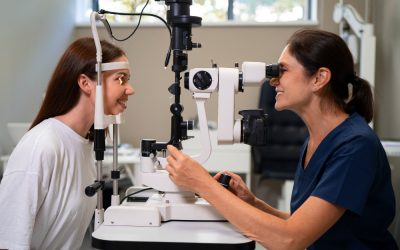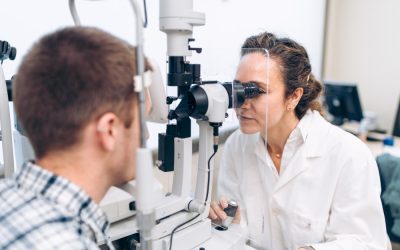Photorefractive Keratectomy: A Guide to Preparing for the Procedure


Welcome to this simple guide on preparing for photorefractive keratectomy. Think of it as a step towards independence from glasses or contact lenses. If you want a clearer view without constantly adjusting eyewear, photorefractive keratectomy might be right for you. Proper preparation is essential for a smooth process and achieving the best results. Let’s explore how to get ready for this vision-enhancing journey.
Understanding Photorefractive Keratectomy (PRK)
Photorefractive keratectomy is a type of eye surgery. It’s popular among people who are tired of glasses or contacts. Why? Because it can improve how you see. Unlike glasses or contacts that correct vision externally, PRK surgery benefits by making permanent changes to the eye itself.
How does photorefractive keratectomy differ from LASIK? Well, PRK surgery benefits those with thin corneas that may not be suitable for LASIK. While both aim to correct vision, photorefractive keratectomy procedure does not involve creating a flap in the cornea, making it safer for some. However, patience is key as recovery might take a bit longer.
Before deciding on this, know that results can vary. You might not get 20/20 vision, but many experience significant improvement. It’s crucial to have honest chats with your doctor about what to expect.
How the Photorefractive Keratectomy Procedure Works
Here’s a simple look at the photorefractive keratectomy procedure. First, doctors remove the thin outer layer of your cornea called the epithelium. Then, a laser gently reshapes the cornea to correct vision.
The great thing? You don’t need to stay in the hospital. The procedure is quick and done on an outpatient basis. Want some added relief? Numbing drops are used to ensure you feel no pain.
How long does it take? Not long at all. Each eye takes about 10 minutes. You’ll be in and out before you know it, equipped with a new outlook.
Determining Eligibility for PRK Eye Surgery
Wondering if you’re a fit for PRK eye surgery preparation? A comprehensive exam is your first step. Doctors will check your overall eye health to see if this surgery suits you.
Eligibility usually depends on: – Age: Most suitable for adults over 18. – Corneal health: Your corneas should be healthy enough for surgery. – Choosing between photorefractive keratectomy and LASIK.
Conditions such as severe dry eyes or certain autoimmune diseases can make you less suitable. Having had eye infections or injuries might also rule you out. Always be upfront with your eye health history.
Preparation Tips for Photorefractive Keratectomy
Let’s talk about PRK eye surgery preparation. Start with initial consultations and understand what you’re getting into. It helps align expectations.
A few steps can smoothen your journey: – Stop wearing contact lenses some weeks before. This helps your cornea return to its natural shape. – On surgery day: Skip makeup and parfum. Arrange for a ride, as you won’t be able to drive afterwards. – Carry any medications you need, and be ready to ask questions.
Preparation is your best tool for a successful surgery and recovery.
What to Expect on the PRK Surgery Day
Here’s a quick peek at what happens on the day of your photorefractive keratectomy procedure. When you arrive, expect a friendly set of pre-op checks and questions.
During the procedure: – Numbing drops will be applied to ensure comfort. – The doctor removes the eye’s thin outer layer. – A precise laser reshapes your cornea.
And don’t worry! While it might sound intricate, it’s all painless. You’ll get a soft bandage contact lens that offers comfort while your eye begins healing.
Immediate Aftercare Post-PRK Surgery
Now, let’s explore immediate aftercare. You may experience some symptoms like light sensitivity or gritty feelings in the eyes. Don’t fret; it’s normal.
Avoid: – Rubbing your eyes. – High-intensity activities. – Swimming or hot tubs.
Regular follow-up visits are vital. They check your progress and catch any small issues before they become big ones.
Ensuring a Smooth Recovery from PRK Eye Surgery
Recovery comforts include using prescribed pain relievers or home remedies like cool compresses. PRK eye surgery preparation goes beyond surgery day, so manage discomfort keenly.
Follow guidelines about avoiding dust or bright lights. Important symptoms like intense pain or severe redness mean you should call your doctor immediately. Stay in touch with your healthcare providers to monitor healing.
Conclusion: A Journey Towards Better Vision
In conclusion, preparing for photorefractive keratectomy is important for seamless results. Teamwork with your doctors amplifies success. Don’t hesitate to voice concerns and queries.
While it may require patience and persistence, the payoff is worth it—freedom from reliance on glasses or contacts. Here’s to clearer vistas and brighter days! Engage closely with your healthcare experts on finding your path to an improved sight.
See the world clearly—Book your PRK consultation at Global Eye Hospital today!


